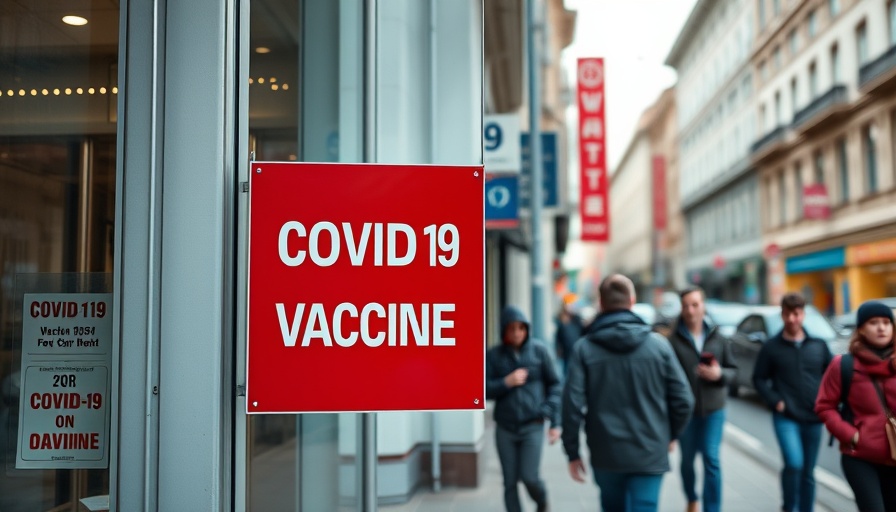
CVS Halts COVID Vaccine Availability in 16 States: What This Means for Residents
In an unexpected move, CVS, the largest pharmacy chain in the U.S., announced it will not be administering COVID vaccines in 16 states, including Massachusetts, due to regulatory constraints. This decision raises concerns about vaccine accessibility amid a potential increase in respiratory virus infections this fall.
Understanding the Regulatory Landscape
The current regulatory climate has created a challenging environment for pharmacies. CVS spokesperson Amy Thibault pointed to the FDA's latest guidelines as the reason for the vaccine halt. States such as Florida, New York, and Pennsylvania are among those affected, with pharmacists restricted from administering vaccines not recommended by the Advisory Committee on Immunization Practices (ACIP). This impacts public health access, especially during flu season when many rely on pharmacies for vaccinations.
The Implications of Pharmacy Restrictions
This announcement signifies a broader trend where federal policies can directly affect local health services. As legal experts highlight, amidst the uncertainty in federal discussions, CVS's decision could lead to reduced access to vaccinations at a crucial time. Last year's CDC recommendation supported pharmacies as a primary access point for the COVID vaccine; however, CVS's current stance indicates a shift potentially causing frustration for patients needing vaccines.
Future Considerations for COVID Vaccination Access
As of now, CVS has stated that it will roll out vaccines if the advisory panel makes further recommendations. However, with the ACIP not scheduled to meet in the immediate future, uncertainty remains. Walgreens, the second-largest pharmacy chain, has also been observed requiring prescriptions for vaccinations in multiple states, echoing concerns about diminishing accessibility for patients seeking the updated COVID vaccines.
Conclusion: Impact on Boston Residents and Beyond
For Boston residents, this development could significantly affect their ability to receive timely vaccinations. As we approach flu season, it is crucial for local health advocates and policymakers to engage in discussions around pharmacy regulations and access to vaccines. The evolving situation at CVS and other pharmacies reminds us of the importance of being informed and proactive about our health needs.
 Add Row
Add Row  Add
Add 




Write A Comment